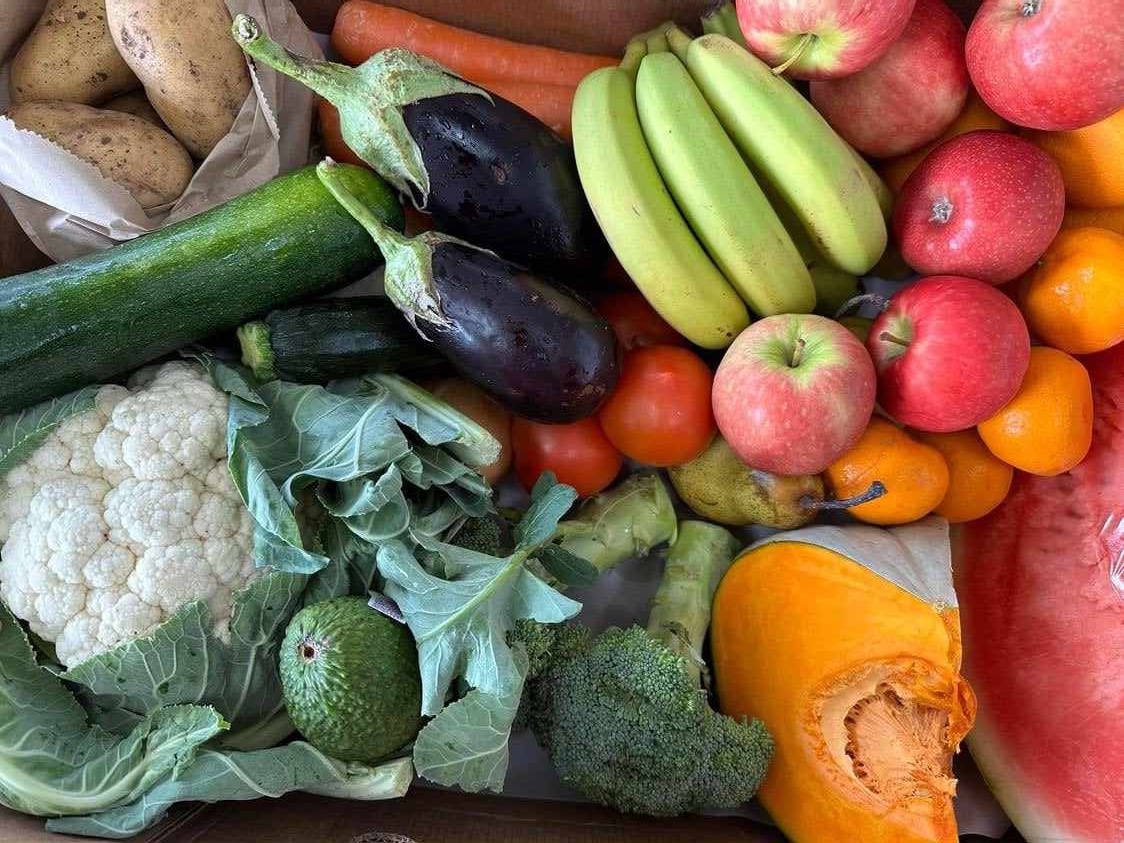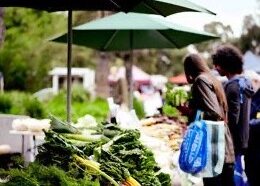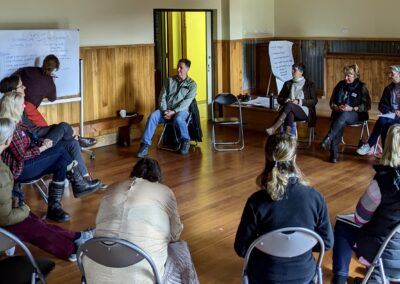Our Services
Why local government should be focused on Food Systems
Community food systems have the power to improve wellbeing and connectedness, while also supporting vulnerable members of the community. Many councils are now recognising the benefits of supporting community food enterprises (like Food Hubs) and are starting to develop Food System Strategies and action plans.
We spoke to Lee Tozzi, Food Systems Officer at the Merri-bek City Council (formerly the City of Moreland) about why it is important to focus on Food Systems, the benefits of including the community in this process and how Open Food Network has been able to help them connect with, and empower Merri-bek residents.
Why should councils focus on Food Systems?
The Merri-bek City Council covers a wide range of suburbs in Melbourne’s inner north. Council launched a Food Systems Strategy in 2017 (and extended in 2020) with a vision of a sustainable, just and vibrant food system. One strategic goal is equal social and economic access to nutritious food or food justice. A key focus is to address food Insecurity in the northern suburbs of Glenroy and Fawkner where it is most prevalent (In these suburbs, 6.5-9.1% of residents experienced food insecurity compared to the average of 3.1% for the Merri-bek City Council).
The Strategy is taking a holistic and socially inclusive approach, ensuring that the Merri-bek community can access food with dignity, and also that it is culturally appropriate.
According to Lee, “Food systems underpin so many things that are about quality of life”, which is reflected by the Strategy’s beneficial impact in other areas such as the Council’s Public Health and Wellbeing Plan and the Zero Carbon Moreland Strategy.
The importance of community voices in food systems strategy.
The Merri-bek community has been very invested in food systems work since the establishment of the Moreland Food Garden Network in 2011 and participation in the development of the open space and street landscape strategies where they “...brought the idea of urban agriculture to the fore.”
There was a clear and visible demand for the council to support urban agriculture and the local community took “…every opportunity the council provided to advocate for that.”
Since then, the Merri-bek City Council has taken an innovative, community-led approach to their food systems work. This has meant that limited council resources can be focused effectively; right where the community wants and needs them.
With this approach, council acts as the enabler by removing barriers and building internal and external partnerships that help make it easy for “…local food champions to do what they do”
“We are trying to demonstrate what can be achieved when you listen to a community”
Lee Tozzi – Food Systems Officer, Merri-bek City Council
How did the Merri-bek City Council implement their strategy?
The Merri-bek City Council first started to understand the benefits and opportunities that could arise from Food Systems Work after one of their councillors attended an Urban Agriculture Forum in November 2016.
A working group was established to develop a draft strategy and in 2017,the Food Systems Strategy was launched. One of the key tenets of the Strategy is that it is held in partnership with the community who help to find and set priorities. This ensures that the work that is done is “by the community, for the community”. This was achieved by the following components:
Asset Mapping
In 2019, the Council engaged two community members to undertake community food asset mapping project. These community members were local food champions and actively involved in the Merri-bek food system, with existing connections to many groups and community members. This provided a strong foundation for identifying and developing positive relationships with a wide range of stakeholders.
Feasibility Study, Community Facilitation and Implementation Plan
One of the first goals of the Food Strategy was to address the high levels of food insecurity in Merri-bek’s North. They wanted to do this in a way that empowered the community and thought that the best way to do this was through a community food hub model.
In 2020, Council engaged Open Food Network to conduct a feasibility study into running a food hub.
“The Open Food Network really understands the research and the concepts and policies, triggers and settings, and can translate that down into manageable projects that they actually can bring to life, and can test out what this looks like, on the ground.”
Lee Tozzi, Food Systems Officer, Merri-bek City Council
Open Food Network provided the advice that for the food hub to be successful over the long term, and for it to have a meaningful impact on food insecurity, it had to be driven and led by the community.
Open Food Network facilitated an in-person co-design workshop with various stakeholders to understand what the community wanted to see in a food hub.
From the outcome of this work a three to five year model for a community food hub was developed. The model recognises that establishing a community food hub isn’t a quick, easy or cheap feat, and requires multiple sources of funding.
You can find out more information about these works here.
A rapid response to the COVID-19 pandemic
The feasibility study and community facilitation work happened just before the first round of COVID lockdowns, which meant that rather than continuing the community facilitation process, the Merri-bek City Council, with help from the Open Food Network, began testing some of the ideas that had been put forward.
Loss of income and jobs during the COVID-19 pandemic led to a further rise in the number of Merri-bek residents experiencing food insecurity as well as the severity. Council conducted a Secondary Impact Assessment to understand the impact of COVID-19. It found 47% respondents working part time or full time had their hours decreased, 28% were temporarily stood down and 10% were permanently stood down.
Culturally and linguistically diverse respondents were more likely to have experienced negative changes to their work hours and reported they were in a worse financial situation as compared to pre-COVID conditions. 34% of the respondents reported heavy stress on their finances from mortgage or rent payments and a further 31% reported moderate stress.
As a result, the community was able to respond to challenges stemming from the pandemic, such as a dramatic rise in food insecurity. In the Council’s Secondary Impact Assessment to understand the impact of COVID–19 they identified that many residents had their hours reduced at work, or being temporarily or permanently stood down.
Community stakeholders went from a “standing start” to getting “culturally appropriate and socially inclusive food relief programs up and running” in four weeks. This was a huge achievement, and the community did a lot of the work themselves, but turned to Lee and other members of the council with any challenges they faced such as:
- Finding a venue
- Getting assistance with food safety standards
- Getting necessary insurances to operate
Fawkner Commons was one of the community led test responses to the rapid rise in demand for food relief triggered by the pandemic. Operating out of the Fawkner Bowling Club and linked to Fawkner Food Bowls, it involved collaborative partnerships with Merri-bek City Council, local food justice organisations such as Ecological Justice Hub, Muslim Women’s Council of Australia and CIS Moreland and local food businesses to feed over 52 families from 11 different language backgrounds across Fawkner, Glenroy and Hadfield for six months.
The learnings from that project are being built on and expanded through Community Food Hub projects now being led by Merri Food Hub and Growing Farmers. You can read more about that here.
Establishing a Food Leadership Action Group (FLAG).
Another recommendation from Open Food Network was to establish the Merri-bek Food Leadership Action Group (FLAG). This collaborative approach gives community stakeholders more agency and a higher profile with council and other funders.
The FLAG was created in 2022, and work is still ongoing.
What has the response been to this work?
The Merri-bek community has responded incredibly positively to the work that has been done so far and are on the right path to transforming their food system. Lee believes that this is a really powerful example of what can be achieved when the community and members of council work together towards a shared, common goal.
It is also encouraging to note that Vic Health recently offered $4 million in funding for Food Hubs, which is a big step towards embedding community based food hub models in more communities.
The work has also been well received by other stakeholders within the council, who are starting to recognise the value of investing in community food systems. According to Lee, the majority of recommendations put forward by Open Food Network have “…been taken on board, which is a measure of how councils have received that work, even though it’s very new and it is quite leading edge.”
The community food hub that was in operation during the pandemic was able to feed an incredible amount of people. Not only does this give the community groups real world data on the ROI of investing in community led food systems, it also brought support to vulnerable community members at a time when they needed it most.
The Merri-bek City Council’s work in this area is inspiring, and should be held up as an example of what is possible when communities and councils are working together. The Merri-bek City Council’s work in this space is ongoing but has already had a measurable impact on the local community. We are following this project closely and look forward to seeing the implementation of the shared community food hub model that delivers socially inclusive food security across Merri-bek’s diverse communities.
Latest Resources
Can we help?
Have an idea, a project or a question? Want help using the Open Food Network software? Get in touch and find out how we can help you with it.
Keep in touch
Join us
Create a listing, shop or group directory on the Open Food Network. Tell me more!

Read our Terms and conditions | Find us on GitHub
Open Food Network is a free and open source software platform. Our content is licensed with CC BY-SA 3.0 and our code with AGPL 3.
We take good care of your data. See our cookies policy
Open Food Network acknowledges the Aboriginal and Torres Strait Islander peoples on the unceded lands and waters across Australia. We pay our respects to Elders, past and present, honouring their rich cultures, traditions and custodianship that nourish communities and regenerate landscapes.




